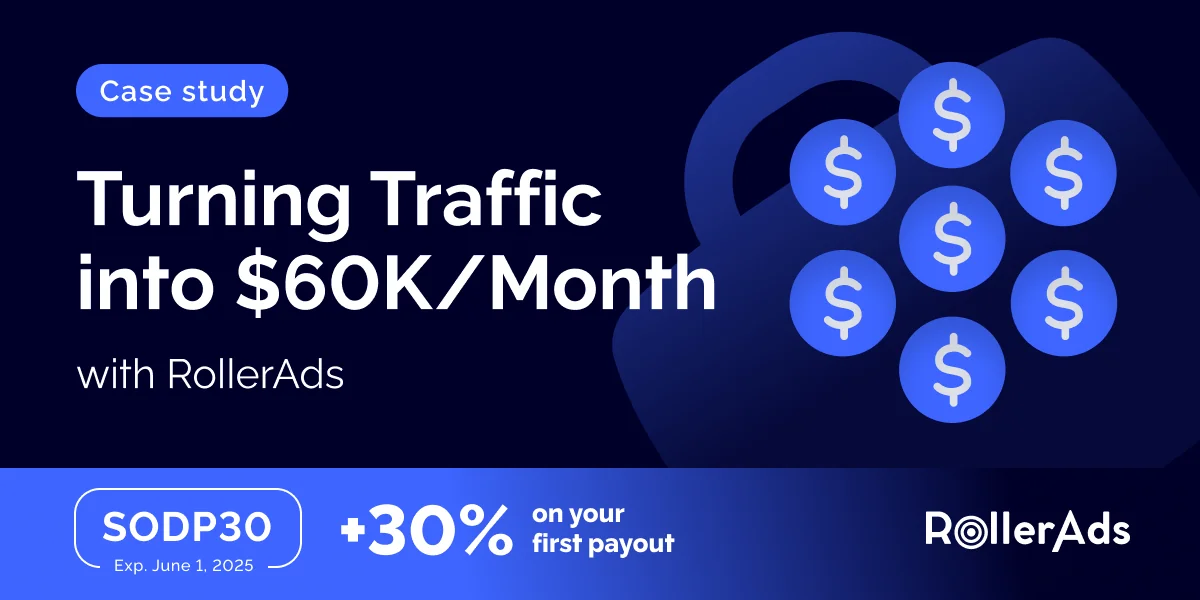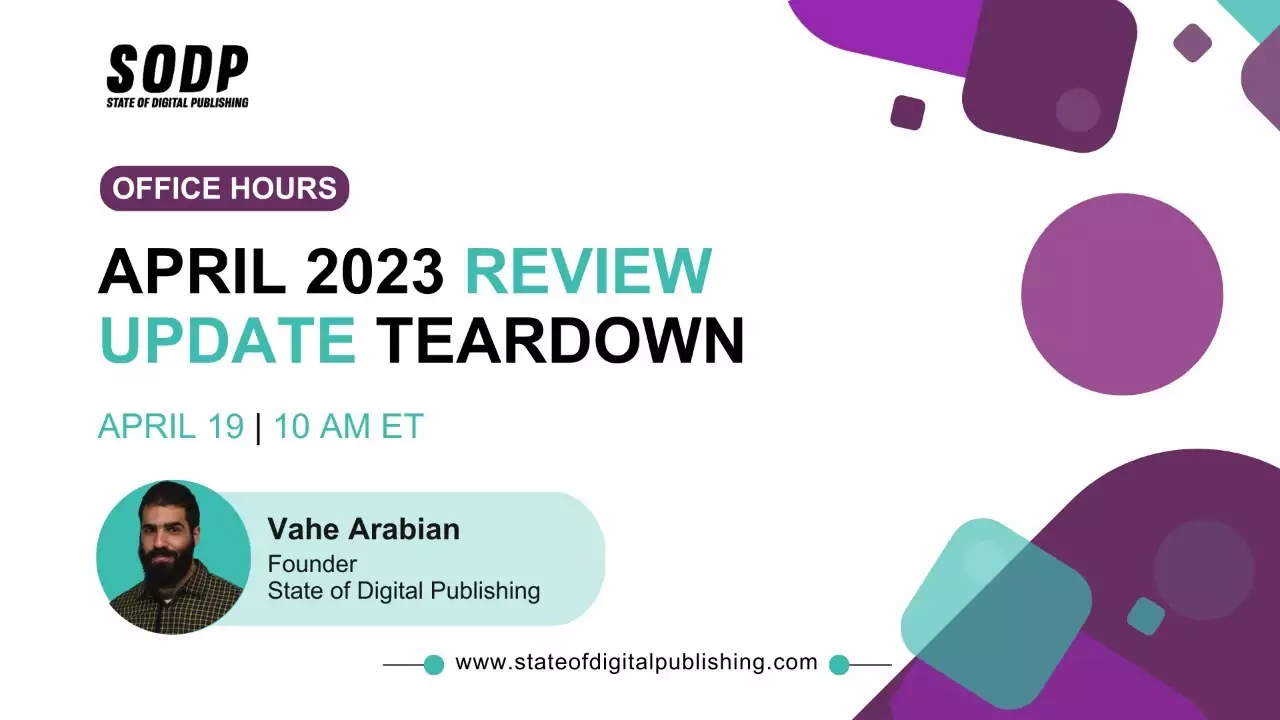What’s been happening in the world of digital publishing over the last week? Here’s your weekly round-up of news, announcements, product launches, and more.
Trends and reports
Facebook’s Most Widely Viewed Links Dominated By Spam
Meta released its latest widely viewed content report showing what the most popular posts were for the second half of 2021.
In addition, the report includes statistics about content that tends to be shared, a list of most popular domains, and the most viewed links, pages, and posts seen by users in the United States.
Meta is transitioning to a new methodology for reporting the most widely viewed content.
For this report, Meta chose to show results based on the old methodology and the new approach. Read more
Why it matters: As the article points out, “The biggest takeaway might be that Facebook is getting better at blocking spam sites if only one site managed to infiltrate the top twenty most widely viewed links.”
The 2022 state of journalism on Twitter
According to the 2022 State of Journalism, “77% of journalists value Twitter more than any other social media platform. Some journalists (39%) say they plan on spending more time on Twitter this year than they did last year. Finally, journalists ranked Twitter as one of their top destinations for finding news, second only to online newspapers and magazines.” Read more
The business of digital publishing
Gov. Whitmer signs bills requiring newspapers post public notices online, free to readers
Michigan newspapers need to post notices of public meetings or other similar announcements online in a manner that is free for everyone, according to a pair of bills Gov. Gretchen Whitmer recently signed into law.
Local governments are also still required to purchase space in local print publications to publicly share the same information, a decision welcomed by media organizations but criticized by some municipalities.
The bills require newspapers to post public notices on their websites within 72 hours of receiving the information from local governments. The websites must have links to the public notices on their home page, and the notices cannot be behind a “paywall,” or a part of the website that requires a subscription. Read more
Why it matters: “public notices are a constant source of income for many print newspapers across the state. For years, local governments have noted it’s at times expensive to buy the advertising space needed to publish all the information they are required to share under the law.”
Marriott Rolls Out Media Network That Lets Brands Reach Travelers on Its Apps and TV Screens
Marriott International Inc. is introducing a media network this month with Yahoo Inc. that will help advertisers target consumers, in part by using the hotel chain’s data on its guests, to bring them ads on places such as the hotel’s websites and, eventually, on the TV sets in their rooms. Read more
Why it matters: “Marriott Media Network comes as the marketing industry is developing new ways to reach consumers amid a wave of privacy changes, including a plan by Alphabet Inc.’s Google to block third-party cookies in its Chrome browser. Brands and ad sellers are increasingly looking to use “first-party data”—information they collect themselves in the course of direct consumer interactions, instead of taking it from third parties—to target ads.”
BuzzFeed’s Q1 Revenue Rises to $92 Million, But Commerce and Engagement Down Again
BuzzFeed, Inc. on Monday reported its first-quarter earnings as a public company, with results showing growing content revenue but declining commerce revenue and time spent on its sites and third-party platforms. Its losses for the quarter also increased significantly from the previous year. Read more
Why it matters: “The biggest challenge for BuzzFeed has been Peretti’s attempt to pivot the company from media and content to an e-commerce player. In a pitch deck to investors last year, the company set a $1.5 billion valuation based on a projected profit of $117 million by the end of 2022 that will mostly come from e-commerce through content commissions, merchandise and other brands and events.”
Big tech
TikTok’s new ad product gives creators a chance to partner with marketers on branded content
TikTok announced that it’s launching a new ad product called “Branded Mission” that will allow creators to connect with brands and possibly receive rewards for videos. With the new ad product, advertisers can crowdsource content from creators and turn top-performing videos into ads. Advertisers can launch branded campaigns and encourage creators to take part in them. Brands can develop a brief and release it to the creator community encouraging them to participate in Branded Missions. Read more
Why it matters: “TikTok and brands already leverage creators for ads on the platform, but the new Branded Mission ad product will give creators, especially newer ones, a new way to partner with brands and grow their audiences.”
Google hits back at Canada’s Online News Act, claiming it would ‘break’ its search engine
Google has hit back at Canada’s attempts to make it pay for news, claiming the government’s Online News Act would “break” its search engine.
Canada’s Online News Act will, like Australia’s News Media Bargaining Code, seek to force Google and Meta/Facebook to negotiate cash-for-content deals with news publishers. Read more
Why it matters: “Both Google and Meta spoke out strongly against Australia’s legislation before it was passed into law. Google threatened to withdraw its services from Australia, and Meta blocked news content – as well as other important public information – from its platforms for several days.
Ultimately, both companies remained in Australia and signed content deals with publishers thought to be worth in excess of AU$200m a year.”
YouTube Upfront Trots Out MrBeast, Lizzo and Other Big Creators, Platform Announces New Ad Frequency-Capping Solution
At YouTube’s Brandcast presentation for brands and agencies, held for the first time during upfronts week, the focus was on the gigantic video platform’s popular creators, its scale across internet TVs — and a new solution for marketers to set limits on ad frequency, addressing one of the most irritating aspects of ad-supported streaming services. Read more
Senators push to break up Google, Facebook ads businesses in new bill
Content from our partners
On Thursday, a group of Senate Republicans and Democrats introduced a new bill that could force Google and Facebook’s parent company, Meta, to spin off their online ads businesses, as first reported by The Wall Street Journal.
The Competition and Transparency in Digital Advertising Act — co-sponsored by Sens. Mike Lee (R-UT), Ted Cruz (R-TX), Amy Klobuchar (D-MN), and Richard Blumenthal (D-CT) — would ban companies processing more than $20 billion a year in digital ad transactions from running more than one portion of the digital advertising ecosystem. Read more
Why it matters: “The restrictions would directly impact Google, which tech antitrust hawks have long seen as a vertical monopoly in display advertising.”
YouTube’s player gains new features including Most Replayed, Video Chapters, Single Loop and more
YouTube is launching a new feature designed to help users identify the most popular parts of a video they’re watching, along with other changes for its video player. The company says it’s adding a graph that people can use to easily locate and watch the most replayed parts of a video — something that could be particularly helpful for longer videos or those that haven’t broken down their various sections using either timestamps or video chapters. Read more
Why it matters: As the article points out, “While creators will often segment their longer videos into chapters or link to select parts via timestamps, the new graph aims to make it possible for users to scrub through any YouTube video to quickly find the most interesting parts. These segments may or not always correlate to where chapters or timestamps would be located, either — particularly in the case of certain video segments going viral, for example.”
SEO
Similarweb Acquires SEO & Rank Tracking Company Rank Ranger
On May 16, Similarweb announced it has acquired Rank Ranger, an SEO and rank tracking company.
This allows the Tel Aviv, Israel-based digital intelligence provider to offer term rank tracking alongside its keyword research and analysis tools.
With cross-search engine capabilities, the combined power of these companies seeks to provide search professionals with better insights into traffic-driving keywords. Read more












